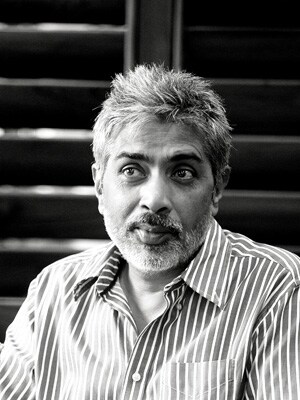
Aarakshan Is Not About Solutions
Filmmaker Prakash Jha tells Forbes India that reservation is a reality and Indians should learn to live with each other's pain
Prakash Jha
Occupation: Filmmaker
Age: 59
Education: Film and Television Institute of India (Pune)
Career: Been in the film industry for 36 years. His film Damul in 1985, about a bonded labourer, brought him to the limelight
Interests: Making politically sensitive cinema for the masses
Q Are political themes a profitable genre in filmmaking?
So far it has worked. People have liked the political cinema that I have made. As long as a movie has a good story to tell, people flock to the movie. It has worked for me in Damul, Ganga Jal and Mrityudand and I’m happy with Aarakshan.
Q You are using big stars to make political films. Earlier the same movies could be made with lower budgets and unknown names.
Things have changed now. Today the costs of making a film have gone up. Even if you make a film with unknown actors, you will still have to spend on marketing. By having big stars in my film, I increase the possibility of returns.
Q Amitabh Bachchan is pro-reservation in Aarakshan. Are these your personal views?
That is not how I would put it. You have to understand that there are all kinds of views in the movie. Bachchan’s views are pragmatic, academic and are views that come from a conscious mind. My personal view is that aarakshan [reservation] is a reality. We in India should learn to live with each other’s pain.
Q The movie sidetracks and does not offer any solutions.
I have heard about that criticism. It is sad that many people who appreciate cinema do not have any knowledge about the ground realities in this country. You should also appreciate that it is not easy to make a film on aarakshan [reservation] in India. But we managed to do it. Nowhere in Hindi cinema will you find these kinds of dialogues… This movie brought out the anxieties of the people in the form of a story. This movie is not about solutions. Getting people to talk about this issue in the open is my greatest achievement.
Q The second half of the movie does not deal with reservation. Why?
That is intentional. There are no solutions to the issue of reservation. The movie is also handling the commercialisation of education as a big theme... I think this is a big impediment to our society. From the beginning to the end, this movie talks about this issue and also how it is interlinked with our existing system. Those who have money can secure the future of their children.
Q What was the controversy about the movie before it was released?
Some politicians started rumours that this movie is against Dalits. The fact is that this is a pro-reservation and pro-Dalit movie. Now, the fact is that the movie [was] banned in Uttar Pradesh.
(This story appears in the 30 November, -0001 issue of Forbes India. To visit our Archives, click here.)





